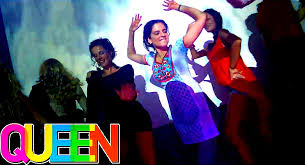It bothers me that Hindutva, as a political creed, exists in India.
Hindus are a large majority in India, and it stands to reason that sheer numbers alone should be reassuring that our way of life and our religion are ‘secure’. That sense of security would then enable us to weave our personal politics based on more important concerns like education, health and economics.
To be fair,the fact that the Congress party has been so electorally successful in modern India is proof that most Hindus, historically, have resisted the notion that religion need affect their personal politics.
Also, in the present day, support for the BJP does not always imply a Hindutva stance.
Still, it is reasonable to assume that the groundswell of support that is predicted in 2014 for the BJP is in some part ascribable to it’s positioning as the defender of the Hindu faith.
This historical branding of the BJP (which, in this election it has avoided) not only implies that Hinduism needs ‘defending’ from certain elements , but also that this defence needs to be political.
Why would anybody buy this way of thinking? How did this insecurity find so many takers?
I’m no political analyst, but I have two theories, based on common sense.
One is history. And also the way it is taught. Most Indians know that the Mughal dynasty ruled large parts of India. That fact itself causes a degree of discomfort, a reminder that we were once ‘conquered’, despite being a large and diverse nation.
Textbooks rightly highlight the ‘best of the century’ type achievements of the emperors, but do not delve into the details of the common people (most of whom were Hindu) for reasons of delicacy, even though there are excellent historical records of Mughal rule.
This approach is wrong on two counts. First, by sweeping the truth under the carpet, a sort of mass denial of ill-treatment and religious persecution is attempted, which is morally wrong by itself. Second, and more dangerously, ‘editing’ the truth breeds exaggeration and distortion of it. The Ram Janmabhoomi Movement, a landmark event in political Hindutva and the Tejo Mahal, are examples of the latter, where fiction took the space that history was erased from.
Also, sometimes this omission of history leads to stupid present-day policy making, like this plan to set up a university in Karnataka named, for some strange reason, after a Sultan who is documented as persecuting his Hindu and Christian subjects.
The other historical event, and perhaps more relevant to the existence of Hindutva, was the call for Muslim separatism at the time of Independence, also known as Partition.
Muslim separatism was similarly rooted in political insecurity, however, given that Muslims were a relative minority on the subcontinent, and the fact that the British Raj encouraged this insecurity, the demand for Pakistan was perhaps not unreasonable. It is my belief, however, that the rise of the Muslim League directly impacted the path that modern-day Hinduism took- providing both template and justification to potently cross nationalism with religion.
While Pakistan became an Islamic state,it is commendable that the Indian leadership, as represented by the Congress of that time embraced secularism.
My second theory relates directly to secularism, or more correctly, the distortion of it.
The word secularism in it’s purest form, implies a complete separation of religion and state. It is the sixteenth word of the Indian constitution, proof that it was once an idea dear to the identity of the nation.
The failure to enact a Uniform Civil Code in India, the Shah Bano case, the Hajj subsidy, and statements like these now form the broken signposts on the long and weary road that secularism has traversed on it’s current path, a path that has mutated it into an idea incompatible with a modern democracy that upholds the equality of one individual to another and divorced from intentions set out in the Constitution.
To be sure, upliftment and genuine affirmative action is needed and welcomed, but direct religious appeasement for political gain is another matter. Far from causing any advancement or uplift, all that happens is added legitimacy to the belief that not all religions are created equal in India, at least in the political sphere. This causes insecurity, a sense of misplaced victimhood, which only strengthens political Hindutva and leads to a birfurcation of the political sphere along religious lines.
I believe that Hinduism and politics should not be mixed.
Separating the two will involve the removal of the glue of insecurity that binds them. This insecurity is dangerous, more often than not misplaced and also pointless.
A genuinely secular India is the best antidote to Hindutva.
While history cannot be undone, it can be discussed more openly and honestly. The bastardisation of secularisation, on the other hand, can still be reversed, but will take time, political will (and more importantly), credibility. These are not qualities associated with either the Congress or the BJP. Wait patiently, we must.
